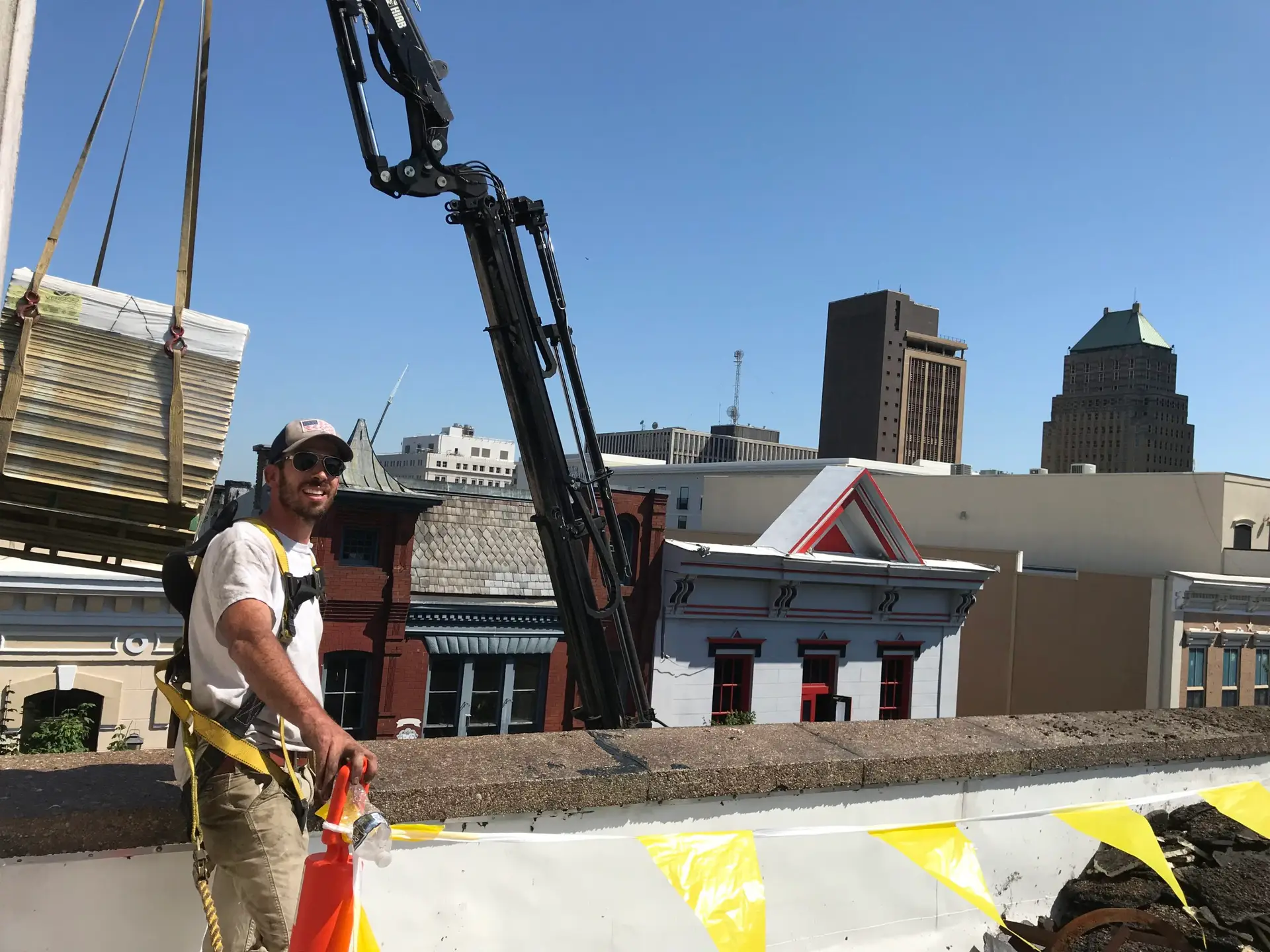Choosing the best roofing contractor for your home or business is a critical decision that can affect the safety, durability, and value of your property. Whether you’re looking to repair an existing roof or install a new one, it’s essential to work with a professional who can deliver quality craftsmanship, reliability, and excellent customer service. With so many roofing contractors to choose from, how do you pick the best one?
1. Do Your Research
The first step in selecting a roofing contractor is to conduct thorough research. Start by asking friends, family, or neighbors for recommendations. Word-of-mouth referrals are often one of the best ways to find a trustworthy contractor. You can also look for local contractors online, but it’s important to check their reputation before moving forward.
- Online Reviews: Websites like Google and Angie’s List provide insight into past customers’ experiences with a contractor. Pay attention to the number of reviews and overall ratings, as a contractor with consistent, positive feedback is likely to provide reliable service.
- Better Business Bureau (BBB): Check if the contractor is accredited by the BBB and see if any complaints have been filed against them. Accreditation indicates that the contractor adheres to specific business standards and is committed to resolving customer complaints.
2. Verify Licensing and Insurance
A legitimate and professional roofing contractor should be licensed and insured. Before hiring a contractor, verify that they have the necessary credentials to operate in your state or region.
- Licensing: Most states and local jurisdictions require roofing contractors to have a valid license to perform roofing work. A license ensures that the contractor meets local regulations.
- Insurance: The contractor should have both liability insurance and worker’s compensation insurance. Liability insurance protects your property in case of accidental damage during the project, while worker’s compensation insurance covers any injuries sustained by the contractor’s crew while working on your roof.
3. Thoroughly Look Over the Estimate
The estimate you receive should be detailed and written, not just a verbal quote. A written estimate should outline the cost of materials, labor, any potential extra charges, and the expected timeline for completion. While you may be tempted by a lower price, it’s important to consider the quality of the materials and the contractor’s reputation. Lowball estimates usually indicate the use of subpar materials and/or poor workmanship.
4. Check Their Experience and Expertise
Experience matters when it comes to roofing. The best roofing contractor is typically one with years of experience who can understand the complexities of different roofing systems and be able to handle unexpected challenges during the project.
- Specialization: Some roofing contractors only specialize in certain types of roofing, such as asphalt shingles, metal roofs, or flat roofs. Make sure the contractor has experience with the type of roof you need and ask for examples of past projects similar to yours.
- Years in Business: A roofing company that has been in business for several years is often more reliable than a contractor who is just starting. Longevity in the industry suggests that the company has a solid reputation and is capable of completing projects on time and within budget.
5. Ask About Warranties
A reputable roofing contractor should offer warranties on both materials and labor. This shows that they stand behind their work and are committed to ensuring your roof is installed correctly.
- Material Warranties: The roofing materials themselves typically come with a manufacturer’s warranty. However, these warranties may be limited and depend on how the roof is installed. Make sure the contractor is familiar with the product’s warranty and installation requirements to avoid voiding it.
- Workmanship Warranties: In addition to material warranties, a good roofing contractor will provide a warranty for their labor. This means they will fix any issues that arise due to poor installation within a certain timeframe. Be sure to ask for a written copy of the warranty terms before work begins.
6. Look for Red Flags
Some roofers can engage in unethical practices – be on the lookout for red flags that may indicate a contractor is not trustworthy:
- High Pressure Sales: Avoid contractors who pressure you into signing a contract quickly or push you to make decisions on the spot.
- Unusually Low Bids: As mentioned earlier, an unusually low bid can be a sign of cutting corners or using substandard materials. Be cautious of offers that seem too good to be true.
- Lack of References: If a contractor refuses to provide references or examples of previous work, it’s a warning sign. Reputable contractors should have no problem sharing past projects and customer feedback.
7. Trust Your Instincts
Finally, trust your instincts. If something feels off about a particular contractor—whether it’s their communication style, pricing, or overall demeanor—don’t hesitate to move on to another option. Hiring the right roofing contractor is a significant decision, and you want to feel confident and comfortable throughout the entire process.
Conclusion
Picking the best roofing contractor for your home is crucial in ensuring a successful roofing project. Take your time to find a contractor who is qualified, trustworthy, and professional. With the right roofing contractor, you can enjoy peace of mind knowing your roof will be installed or repaired to the highest standards.
*Guyette Roofing and Construction has over 200 positive google reviews, we have an A+ rating on BBB, we are fully licensed and insured, we provide both material and workmanship warranties, and we have been in business with the same phone number for over 40 years. Give our office a call, message us on Facebook, or reach out to us through our website if you need us.

